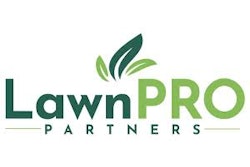
Green Industry Pros sat down with Andrew Bray, senior vice president of government relations and membership of the National Association of Landscape Professionals (NALP), to discuss the most recent regulation affecting the green industry and how landscape professionals can prepare for them.
Green Industry Pros: First off, why is it so important that landscapers stay on top of regulations?
Bray: I think it’s extremely important because the regulations and policies enacted at a national level and in all 50 states can have a profound impact, both negative and positive, on their landscape business, whether it be on profitability, safety or even complying with a new law.
GIP: How can landscape pros ensure they are staying up to date on regulations?
Bray: NALP has a weekly newsletter geared specifically toward advocacy. It’s also staying in tune with your local community. We track everything at the federal and state levels, but the local level can be harder to track. That’s where being engaged with your local chamber of commerce or sitting on the board of homeowner associations can be the place where you find out about things that are coming down the pathway.
GIP: Can you give an update on H-2B?
Bray: Essentially the cap is 66,000. In each of the last seven years, we have been able to put in appropriations that give the administration this discretionary authority to release supplemental visas. To our delight, the Biden Administration, in the last two years, has released the full amount of supplemental visas, which is 64,716 extra visas. They’ve done so in November or December, giving certainty to our people who are applying for the first half so they can have access to supplemental visas. That is important for some of our members because some of our members have a start date that could be in mid- to-late February to early March in warmer climates. This also alleviates some of the stress on the second-half cap.
We had a fly-in event in late May where we had approximately 140 members show up and had over 150 meetings scheduled. This all lined up with the House moving their appropriations package out of committee. In the committee, we had some of our champions offer an amendment that would change the language that we’ve used the last few years by changing one word: ‘may’ to ‘shall.’ The word ‘may’ provides the administration discretionary authority, meaning they get the chance to determine if those supplemental visas are released, where ‘shall’ automatically triggers that when the cap is hit, the extra 64,716 should be released. The reason we wanted this so badly is that there’s no guarantee that the Biden Administration is going to release them again, and we have serious concerns that the Trump Administration is going to be openly hostile to the H-2B program. Unfortunately, the Rules Committee stripped out our 'may' to 'shall' language and reverted to the standard discretionary 'may' that we have had the last seven years. While we appreciate at least having that language, we are extremely frustrated that language that simply maintains the status quo of the last two years couldn’t be included to increase certainty for seasonal businesses. This was not completely unexpected, and we have several more options. First, we always knew we would be in a CR this fall, which only has the discretionary language, which means we are already in conversations with the Biden Administration to release the 64,716 in October or November. Second, the Senate is completely in play with our 'may' to 'shall language already under consideration with Appropriators like Collins (R-ME) and Murphy (D-CT) that are supportive. Last, we will be pushing for this while we’re in a CR during the lame duck Congress this winter, when there are additional opportunities to include cap relief provisions.
GIP: And what's going on with the Farm Bill?
Bray: We have positive developments there as well. We want to get language into the Farm Bill that prevents localities from regulating pesticides and ensures that it’s always the state that regulates the sale and use of pesticides. I am happy to report that the House actually moved their Farm Bill out of committee. It was a very partisan bill. There’s a lot of
Democrats that didn’t love the bill, but it has nothing to do with our provision. It’s more about food stamps and the amount of funding going toward some green initiatives. Our language cleared out of committee. Now, we’ll have it move across the House floor. We have been told that it’s likely going to happen in September. Now we are working to make sure we can get bipartisan support for the overall package in this hyperpartisan world.
So, we’re in the House, and we’re at play in the Senate. Here’s the part that’s very tricky about this issue. The Senate Republicans believe pretty certainly that they’re going to take the Senate, so they have very little motivation to move a Farm Bill they don’t like when they’re not in control. If that happens, we’re going to be in great shape. On the flipside, if the House flips back to Democrat, then the House is going to have to pass their own Farm Bill. Again, it’ll likely be under Democratic control. The good thing for us is we have some bipartisan support for our provision.
If we can’t get the provision on the Farm Bill, we’re going to be working on an appropriations strategy, which is similar to what we’ve done on H-2B. The reason we don’t love the appropriations strategy is that you’re not making a permanent fix; you’re just doing an annual band-aid.
On the state level, we’ve had some significant wins this year. In Colorado, they were trying to roll back pesticide prevention, and we’ve been fighting that for several years, and it looked like they were going to be able to do it, but we were able to fend it off because of some great engagement by members in Colorado. What happened in Colorado was a huge win for the industry and a great blueprint for how we have to attack these issues throughout the nation.
GIP: What’s the latest with the overtime regulations in the white-collar exemption?
Bray: This is only for people in the office. The people in the field have to get paid overtime. The rule was published very recently, and as expected, the threshold is going to raise to about $50,000. So, the current threshold is $35,568. If you’re making below that, you have to be paid overtime. That threshold is going to raise to $43,888 on July 1, and then January of 2025, it will go all the way up to $58,656. This has been litigated heavily. However, I do believe that at the end of this litigation, we are going to see a significant increase in the salary threshold..
GIP: What about heat safety?
Bray: There are several states that already have a heat standard, like California, and a lot of states follow California’s suit. On July 2, the Department of Labor Occupational Safety and Health Standards published the much-anticipated new standards for workplace safety pertaining to heat in both outdoor and indoor settings. NALP was involved with providing feedback to OSHA on much of what has been introduced, and upon initial review, we believe that compliance will likely not be overly burdensome, but we are closely reviewing specifically with regard to some of the active monitoring.
GIP: And finally, do you have an update on emissions regulations?
Bray: The whole gas to electric transition is obviously very topical, but we’re seeing more on that front at the local and state level. Over the last two years, approximately 15 states have attempted to move forward with some sort of equipment ban, whether it be just leaf blowers or everything. Today, only California has been successful in doing that. We have fought back many proposals through various states, but that issue is not going away. So, my advice to landscape professionals is to begin to integrate electrical equipment into your fleet so that you understand its capabilities and you understand how to work with it, and you can begin to absorb the cost easier than doing it when you’re told you have to. Aside from that, the other advice is, if you’re hearing about a ban, let us know. Be very aware of that as a very topical issue for our industry right now.


![Doosan Bobcat Wacker Neuson Stack 2ec Js Pb V6e[1]](https://img.greenindustrypros.com/mindful/acbm/workspaces/default/uploads/2025/12/doosan-bobcat-wacker-neuson-stack2ecjspbv6e1.CPyyz8ubHn.png?auto=format%2Ccompress&bg=fff&fill-color=fff&fit=fill&h=100&q=70&w=100)








![Doosan Bobcat Wacker Neuson Stack 2ec Js Pb V6e[1]](https://img.greenindustrypros.com/mindful/acbm/workspaces/default/uploads/2025/12/doosan-bobcat-wacker-neuson-stack2ecjspbv6e1.CPyyz8ubHn.png?ar=16%3A9&auto=format%2Ccompress&bg=fff&fill-color=fff&fit=fill&h=135&q=70&w=240)








